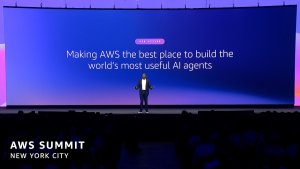
From a dollars standpoint, it is a massive deal. It is larger than Microsoft’s LinkedIn ($26.2B) + GitHub ($7.5B), and as a single deal, only Dell’s $67B acquisition of EMC, and Avago’s $37B of Broadcom are bigger.
TL/DR: Does this change cloud? Yes for IBM, no for the market as a whole. Does 107 year old IBM get new life? Perhaps
The cloud game
The “cloud” marketplace is diverse and nuanced. In the public cloud, while IaaS is a competitive game, each of the big players has different strengths and strategies. AWS is the clear leader in the space, Google has strong data services driving AI/ML offerings, Microsoft has the most advanced hybrid strategy (Azure public & private cloud options) and strength in business productivity applications. IBM was fighting to be a top five public cloud contender, and while it has a strong portfolio of applications and solid IaaS offering through the Softlayer acquisition, it was failing to compete. Red Hat’s strength is playing across all ecosystems, both Linux (Red Hat Enterprise Linux RHEL is the foundation of its business) and OpenShift (container and application platform including Kubernetes) are available across a wide spectrum of public clouds and infrastructure platforms. Buying Red Hat does not mean the end of IBM Cloud, rather it is a signal that IBM’s position in a multi-cloud world is one of partnership. I first heard the term “co-opetition” in relation to IBM many years ago; Big Blue has decades of managing the inherent tension of working with partners where there are also competitive angles. Cloud computing is only gaining in relevance, and open source is increasingly important to end-users. IBM’s relevance in multi-cloud is greatly enhanced with the Red Hat acquisition, and IBM’s positioning with the C-suite should help Red Hat into more strategic relationships. This is not a seismic shift in the cloud landscape
Changing perceptions
It is very difficult for a 100 year old company to change how people think of it. It is not fair for people to think that IBM is a navy suit selling mainframes – while of course some people still wear suits, and IBM zSeries has been doing well, the company has gone through tons of changes. IBM is one of the few companies that has avoided being destroyed from disruptions in the technology industry. While many (including myself) are a sad to see the “leader in open source” acquired, there are few companies outside of Red Hat that have as good of a record with the communities as IBM. Microsoft rejuvenated its image with a new CEO who focuses on not only cloud and AI, but diversity and openness (Microsoft was on stage this year at Red Hat Summit). IBM says that they will keep the Red Hat brand and products; will they be able to leverage Red Hat’s culture and community strength to bolster both IBM sales and relevance in the marketplace? There is an opportunity for IBM and Red Hat to both rebrand and reposition how they are considered by customers and partners in the new digital world.
The Wikibon and SiliconANGLE teams will continue to examine all of the angles of this acquisition. Here’s a 20 minute video with Dave Vellante and me sharing our initial thoughts:
Also see:
IBM Buying Red Hat: Will You Trust Big Purple? By Peter Burris
IBM’s Acquisition of Red Hat is a Pivot…But Many Questions Remain by Dave Vellante
In a bombshell deal, IBM acquires open-source pioneer Red Hat for $34B by Rob Hof
With Red Hat, IBM expands its focus on cloud-native development for multiclouds by James Kobielus


